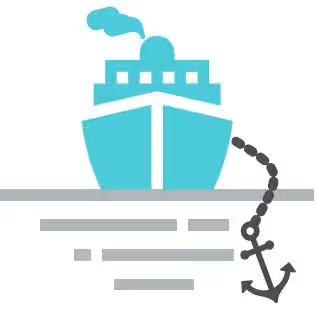Discover the top 7 keys to selling your used boat on marketplace successfully. Learn what boat buyers want, how to present your boat, and the best strategies to ensure a quick and profitable sale.
- The Used Boat Marketplace
- What Boat Buyers Want
- The Boat Seller’s Secret
- The Seven Keys to Boat Selling Success
- Key No. 1 – Like New Boat
- Key No. 2 – Proud to Own It
- Key No. 3 – Your Boat Should Be Best Boat
- Key No. 4 – Taking Care of Boat Will Pay Off
- Key No. 5 – Don’t Sell “As-Is”
- Key No. 6 – Solve Boat Problems
- Key No. 7 – Discounts
To start out, let’s step into the shoes of a used-boat buyer for a few minutes to gain an appreciation of what he is looking for and, more often than not, finding in his quest to buy a new boat.
The Used Boat Marketplace
Unfortunately, for you the seller, one of the basic facts of life is that there are far more used boats available for sale at any given moment than there are buyers who want to buy them. Within the classified ad pages of thousands of newspapers across the land, listed on several major Internet advertising sites, and sitting in marinas or on trailers in countless driveways there are literally hundreds of thousands, perhaps even a million used boats for sale in the United States at any given time. As a result the patient buyer can choose from a large selection of boats in almost any category. It is a buyer’s market. As an aspiring seller of a used boat, this obviously puts you at somewhat of a disadvantage
Happily, despite the oversupply of used boats, there are a few simple things you can do to try to convince buyers that your boat is not only one of the very few acceptable boats out there, but the only acceptable boat they will ever find. If you do that, the latter in particular, you will greatly improve your chances of selling your boat quickly — and getting a premium price for it.
What Boat Buyers Want
In addition to the basic overabundance of used boats on the market, there is also the fact that most boat buyers would much rather buy a new boat than pick up something secondhand. Except for collectors of classic boats, it is fair to say that if the price is right, or even just barely tolerable, nearly all boat buyers would prefer to buy a brand-new, shiny, clean boat with everything working perfectly.
They would like to purchase this boat from a nice looking, pleasant, polite, witty boat salesperson who is fun to be around. They would like to take possession of their new boat with everything in perfect working order, complete with piles of helpful user’s manuals and owner’s literature, including an official looking, ornately engraved warranty statement printed on the finest paper and covering each and every component in their boat.

Source: unsplash.com
They would also like to have the comfort of knowing (or believing) that the big, rich, brightly lit boat dealership out on the main highway with the nice looking, pleasant boat salespeople and the competent, factory-trained boat mechanics will always be there to take care of any problems that might come up in the future. And why not? Sounds reasonable to me.
Here’s why not. In a report entitled “Boating 2001 – Facts and Figures at a Glance”, published by the National Marine Manufacturers Association, market statistics show that boats are becoming increasingly expensive, to the point where the number of buyers willing and able to pay the price of a new boat is declining. For powerboat stern-drive models, for example, between 2000 and 2001 the average unit price for a new boat increased 6,3 percent, reaching the staggering figure of $30 561. During that same period the number of new boats actually sold declined by 5,5 percent.
Sailors are experiencing a similar trend. According to a recent North American sailing industry study between 1999 and 2001 the average price of new sailboats increased 23,1 percent to $34 225, while the number of sailboats sold declined 5,2 percent. A few small niches in the new-boat market are showing strong growth. The upscale inboard motor cruiser, for example, showed a gain of 14 % in unit sales despite a huge increase of 31 % in retail price (to … $293 700 if you must ask). Otherwise, year-to-year sales in almost all categories are flat or declining.
Of course, this doesn’t mean the average boat-buyer has lost his desire to own and enjoy a boat, or that boating is declining in popularity as a recreational pastime. Nor does it mean that the pool of possible boat buyers is shrinking. It just means that there are an increasing number of frustrated buyers who would like to have a nice new boat, but cannot or will not pay the increasingly intimidating price being charged for admission to the new-boat club.
This, of course, is a critical bit of information you can use to your advantage when you are selling your boat, since priced out of the new-boat market, frustrated boat buyers have no choice but to turn to the next best alternative, i. e., they go looking for a used boat at a price they can afford.
The thing to remember here is that would-be buyers are really looking for a like-new boat with an affordable price tag. And there are very few boats like this even among the tens of thousands of used boats for sale. This then is what you want to offer to the buyers – a really nice, clean, shiny, reliable like-new boat.
The Boat Seller’s Secret
Although there are far more used boats than buyers for them, there is a severe shortage of nice, clean, like-new used boats.
With this in mind there are seven key points you need to be aware of as a boat seller, so that you can take full advantage of this fact when selling your boat. Before we go into these specifics though, let’s step back into the buyer’s shoes for a moment to examine in even greater depth exactly what a boat buyer faces as he begins shopping for used boats that resemble the new boat he would really like to have.
First of all, the shopping experience is a lot less pleasant than it was when he was shopping for a new boat. There are no nice-looking, pleasant, agreeable boat salespeople to talk to. There are no brightly lit dealerships with free hot dogs and music. Rather than being gathered together on a single brightly lit lot, the used boats are scattered all over the county, sometimes located in out-of-the-way, unpleasant and even occasionally frightening looking places.
Most disappointing of all, a lot of the boats are dirty, run down and in need of repair – not at all ready to take out and enjoy. It doesn’t take long for a buyer to realize he is a long way from that new-boat dealership and that his boat-buying experience just got a whole lot more intimidating and complicated.
Amazingly enough, it is a fairly typical experience that used boats offered for sale by the owners are frequently in less than superb shape. It is rare indeed for an owner to sell a boat while it is in perfect condition, with everything working, all nice and clean and spiffy. Frequently, sellers of used boats have lost interest in their boats and have let them sit neglected for a while before they made the decision to sell.

Source: unsplash.com
Boats accumulate a surprising number and variety of problems while just sitting around. Besides, the boat probably had some problems even when they were still using it. As long as the problems weren’t too bad, the owner overlooked them, working around whatever minor inconvenience they caused. He may well have completely forgotten that the problems exist at all.
Of course, when buyers start driving around and looking at used boats, they notice all of the problems and hear a lot of excuses for them, which has a very bad effect on the buyer, as well as the “boss” if his or her spouse is present as well. Remember, what they want is a nice new, shiny, spiffy boat with no problems. It is disappointing to buyers to have their hopes dashed. After two or three such experiences, they can get downright depressed. They want more than anything else for the unpleasant process to just come to an end.
Imagine then the exhilarating effect on the buyer (and the boss) when out of the disappointing wasteland of the used-boat marketplace emerges your clean, shiny, clutter-free, problem-free boat, ready to take out and enjoy. Suddenly, in a world filled with used boats, your particular boat has become a rare commodity.
The Seven Keys to Boat Selling Success
Key No. 1 – Like New Boat
Make your boat the shiniest, cleanest, neatest, most perfectly operating like-new boat that the buyer will find, and he will be afraid to let it get away.
Emotions control our behavior. We like to think of ourselves as rational, logical, intelligent beings, masters of our own destiny, but in reality this is rarely the case. It is for this reason that professional advertisers, marketing specialists and successful salesmen all know better than to produce advertisements that try to persuade us with logic and reason. Instead, they appeal to our raw emotions, those irresistible impulses that create our feelings, urges and cravings, and control our behavior more often than we will admit.
Read also: Prepare the Boat for the New Owner
These emotional impulses are a vestige of our past. They provide us with essential guidance, directing our behavior in ways that have ensured our survival as a species. In fact, scientists have found that these emotions originate deep in the subconscious part of our brain. Because of the way our brain is constructed, they will always be able to exert a far stronger effect on our conscious brain than our conscious brain can exert on our emotions. Psychologists, salesmen and advertising specialists all know this; that our brains are wired so that we cannot resist these feelings, and that the strongest emotions we feel are fear, anger, disgust and disapproval.
Emotion then is a most powerful tool if you want to sell your boat quickly and get top dollar for it. Look back at the word “afraid” in Key No. 1. Fear is one of the strong primary emotions, and it is one that professional advertisers frequently target in their appeals. Take a look at the basic message in the commercials you see on television or in the full-page ads in the Sunday paper.
“Don’t miss this once-in-a-lifetime sale!” “Don’t be embarrassed by yellow teeth!” “Don’t pay too much!” And so on.
The recurrent themes are fear of a missed opportunity to save money, fear of embarrassment or fear of overpaying – fear, fear, fear. The reason businesses run these ads is that they work. It is expensive to produce and run an advertisement, and you can be sure that you are seeing only the tried and true methods put to work. No one is going to pay the high price to produce and run an ad in which some accountant or engineer stands there and presents scientific facts and statistical figures proving that one product is indeed better than another. It could be done, but it would not sell products as well as emotional appeals do. It’s the way people are.
Key No. 1 then is all about bringing the powerful emotion of fear into play to sell your boat – to compel the buyer to act to buy your boat, and to act immediately for fear that he may miss his opportunity.
Keep in mind that when looking at new boats, buyers know they can shop around and take their time because there are plenty of new boats for sale. Even if a dealer sells out of a particular model, buyers know that the dealer will get another one pretty soon. It’s yet another luxury that comes when buying something brand-new. When looking at used boats, though, buyers have no assurance at all that the boat they saw last week, yesterday or even this morning will still be there waiting for them if they decide to go back and buy it.
Of course, if a boat was in just average condition, there is no reason for the buyer to fear that it will sell quickly. And even if it does sell, there are plenty of other used boats just like it to choose from. If, however, they see a really nice, attractive like-new boat for sale, they will worry that it won’t last long because it is a rare and desirable item. Not only that, they know that if it is sold to someone else while they are off thinking about it, it may be a long time before they find another one as nice. What they feel, what they fear is that if they let it get away, they will never find another boat as desirable as yours.
Key No. 2 – Proud to Own It
Make your boat so clean, neat, shiny, pretty, functional and desirable that the buyer will be excited to own it, will be proud to own it, and will be proud to show it to his friends and neighbors when he takes it home.
This is another emotional play you can use to your advantage, to strive to stimulate the same feelings of covetousness, lust, desire and pride that happen to buyers when they are at a new boat dealership. This point is so obvious it’s amazing everyone doesn’t see it. But they don’t. In fact, most boaters list their boat for sale as-is, doing little if anything to prepare for the sale. A new owner simply cannot get excited and be proud of a dull, dirty boat that obviously needs money and work before it can be enjoyed.
If, on the other hand, your boat is all shiny and pretty and ready to go take out and enjoy, you give the buyer the opportunity to fall in love with your boat. The actual emotions that come into play are greed, desire and lust. You want the buyer to look at the boat and hear a little voice in his head, or get a feeling in his stomach somewhere that tells him, “I want this boat!” or “This is the one!” or something as simple and visceral as “Oh, yeah!”. You get the picture. Of course, this can only happen if your boat is fixed up, cleaned up and shined up to the point that someone else can really want it. Once this happens, though, the buyer is going to want to buy your boat, and a little matter of a few hundred dollars isn’t going to stop him.
Key No. 3 – Your Boat Should Be Best Boat
When you go to the trouble and expense to sell the very best like-new boat on the market, you disqualify most or all of the competition.
This is one of my favorites. The buyer has been through the hassle of reading ads, calling sellers and driving around looking at boats. Maybe he’s found one or two boats that he thinks are acceptable, and he is keeping them in mind and has them on his short list, but they aren’t perfect. They have problems, cosmetic and otherwise. They are the best boats he’s found so far. But he’s not in love with them.
Then he comes to see your boat. It’s all shiny and glossy, just like a new one. The upholstery and carpet look great. The interior smells good. The storage compartments are empty and clean, and there isn’t a speck of clutter or dirt anywhere. Everything works on your boat. The starter kicks the engine over vigorously at the touch of the key, and the engine catches immediately and runs as smoothly as a new one. The buyer sees that the horn, running lights, anchor light, instruments, hydraulic trim and radio operate perfectly because you demonstrated them for him. He notes that the safety equipment is all there and looks good, especially the new lifejackets, or PFDs, that you thoughtfully provided. Even the trailer looks good, including the tires and rims.

Source: unsplash.com
Faced with such a hot prospect, he may buy your boat then and there. And in the unlikely event that he decides to leave and think about it, he has a problem. Those other boats on his short list that he previously thought were acceptable are now completely unacceptable. They simply don’t measure up to your boat. They aren’t as clean and shiny, They have problems. Not only that, but given his experience looking around at other boats for sale, he suspects the chances are small that any of the other boats he plans to go and see will measure up either. In short, you will have reduced your competition to zero. Compared to your boat, no other used boat will do. You’ve put him in a bind, particularly if his boss is helping him do his shopping.
Key No. 4 – Taking Care of Boat Will Pay Off
When you are selling the very best like-new boat the buyer will find, you can demand and get a substantially higher than average price for your boat.
Repeat after me: Price is a secondary issue. Consumers do not go out and select items to purchase just because they are available at a bargain price. First, consumers decide that they want to possess an item. Only then do they begin to consider price or shop around to find a deal they like best.
In fact, price only spoils the deal when the price becomes so high that it constitutes a barrier to a successful sale.
For example, a price barrier may occur if the buyer perceives that the price he will have to pay is not justified by the benefit he will receive from owning the item.
Or the price is so high that the buyer simply cannot lay his hands on enough money to buy what he wants. You will have a price barrier also when a buyer thinks the price is so outrageous there is a real possibility of his looking like a complete fool for paying too much. Frequently, boat buyers will fail to recognize this last danger until it is too late.
In fact, if your boat is the cleanest, shiniest, most perfect used boat on the market, and if the buyer believes and trusts you, he is not going to let a few hundred (or even a few thousand) dollars stand between him and the boat he wants. You may be asking quite a bit more than the average for your boat. But you are still asking a lot less than they are down at the dealership. Your boat is still a bargain when compared to the cost of a boat that is brand-new.
Remember, if you go to the effort and expense of really shaping up your boat, you rise above the market of the million mediocre used boats and position your boat in the very small market of like-new boats available to the buyer. There is much less competition from other sellers in that rarefied market niche.
Key No. 5 – Don’t Sell “As-Is”
If you sell your boat as-is, you will enter yourself in a discounting contest in a buyer’s market.
Again, price is a secondary issue, and this applies to price discounts in much the same way that it applies to price premiums. As stated above, if a buyer really wants your boat for emotional reasons, a little matter of paying a few extra dollars will not be enough to stop him from buying it. On the other hand, if the buyer does not want your boat for emotional reasons, then a small price discount will not be enough to make him change his mind.
If you try to sell your boat as-is, it forces you to enter into a pure price competition with the other sellers of average used boats. And you will soon learn that you must compete hard to land a buyer using this approach, i. e., you must cut your price dramatically and cut it fast to close the sale and keep the buyer from walking away. Of course, most of the other sellers of average used boats soon learn the same lesson, which means they will be cutting the prices for their boats in much the same manner.

Source: unsplash.com
Ultimately, it takes a lot of price discounting to really get a buyer excited and motivated to act. If you are selling an average boat that needs to be cleaned up, polished up and has a few problems that need to be taken care of, you haven’t given the buyer much to get excited about. If you then offer him a hundred-dollar discount, he still isn’t going to be very excited. True, you can offer something more dramatic, maybe knock 50 percent off the price, which may be enough to convince the buyer that he can afford to have a new interior installed or replace the engine with a new one or replace the rigging and purchase all new sails. But that is an expensive way to get the job done. Therefore, skip the discounting contest. Move yourself and your boat up into that nice, thinly populated market of like-new boats where you can appeal to a buyer’s emotions.
Key No. 6 – Solve Boat Problems
If you sell your boat with problems, you disqualify many, perhaps most of the potential buyers in the market.
Again, almost everyone would rather have a new boat as opposed to a used one. Buyers want to take their new boats out and enjoy them as soon as possible. They don’t want to have to do a lot of work cleaning them up or getting them fixed immediately after paying a chunk of money for them. True, there are some people who are willing to repair a boat they just bought. But many buyers will simply not buy a boat if they know they will need to work on it before they can enjoy it.
Let’s say, for example, you have the option of selling your boat in one of two cities. Lake City is a town surrounded by beautiful lakes and just about everyone in town owns a boat. In Lake City, there are a hundred people at this moment in the market to buy a boat like yours. On the other side of the state is Rock Hill. There isn’t a body of water within four hours of Rock Hill, and the only residents who own boats are a few diehards who are willing to spend their time driving their boats to Lake City and back every weekend. In Rock Hill there are three people who are looking for a boat like yours.
Given the choice of selling your boat in Lake City or Rock Hill, which would you choose? Why, Lake City, of course. There are more buyers for your boat in Lake City.
The same thing goes when you try to sell a fixer-upper.
If you offer your boat for sale with problems you dramatically reduce the number of potential buyers for your boat. You will have to advertise longer, and you will have to saturate the available media to flush out a buyer from the reduced pool of buyers who are willing to buy a boat and fix it before they can enjoy it. When you do find one of the few buyers interested in buying your boat with its problems, you aren’t going to be in a position to bargain very well. In short, trying to sell your boat with problems is like towing your boat over to Rock Hill in search of buyers. It just doesn’t make a whole heck of a lot of sense.
Key No. 7 – Discounts
To sell your boat in the fixer-upper market, you will have to discount it much more than it would have cost you to fix its problems yourself.
Suppose your boat has more than a few problems. Suppose it needs some substantial repairs to get it back into fun condition. Should you go to the expense and trouble to repair it before you sell it?
Absolutely. Remember Rock City! Selling your boat in the fixer-upper marketplace is bad business. Granted, there are a few entrepreneurs out there who go shopping for fixer-upper boats, but you are not interested in dealing with them since they are only going to buy at rock bottom price. Their intent is to make money on the boat when they resell it. Every dollar they give you for the boat hurts their profit.
Simply put, if you try to sell your boat in run-down condition, needing substantial work or even major repairs, you are going to take a beating. You are going to be road kill on the used-boat highway, fresh meat in the shark tank. The few buyers who show an interest in your boat are going to do their best to eat you alive. You are going to have to make a deal with one of a small group of hard-nosed buyers in order to get rid of your boat. These people are not going to fall in love with your boat. They are not going to be motivated by emotion. They are going to be thinking and figuring. This is cold, hard business now.
Certainly, some fixer-upper boats are bought by individuals who rehabilitate them for their own private use. But a lot of these boats are bought by professionals – wholesalers, boat traders and marine mechanics looking for extra income. These pros are going to be thinking about turning a profit, and little else. They will look at your boat with its obvious problems and start doing a little mental arithmetic. They will figure how much the boat could fetch if it were cleaned up and fixed up. Then they will figure what it will cost in time and money to clean it up and fix the problems they can identify immediately. Not surprisingly, they will tend to think on the high side in terms of repair costs, the worst-case estimate.
Then again, it’s always possible that they will have to rebuild the entire fuel system or ignition system before they finish, so that’s the number they keep in mind. I they get lucky with the carburetor or the ignition, that’s going to be their good fortune, not yours.
Along these same lines, when tallying up the cost of fixing all the obvious problems, they will tack on an additional discount since being experienced they know there are likely to be more problems beyond what they can see at the moment. They know that a boat that has been sitting up for a while continues to deteriorate, so they will figure in an additional discount to cover the cost of repairing the additional defects that they expect to discover after they buy the boat and start working on it.
It is even worse if the boat cannot be run and demonstrated at the time of sale. In that case, the careful buyer must consider the possibility that there are major problems in each and every system in the boat, and that it could require a complete rebuild before the boat can be made reliable so that it can be sold or enjoyed. A pro in particular will lower his offering price accordingly.
The simple fact that you are trying to unload your boat with obvious problems tips buyers off that you do not want to take the time and trouble to properly prepare the boat for the market. They know you just want it to go away. They will keep that in mind when they decide how much to offer you for your boat. We’re talking low ball here, a small percentage of the wholesale book value, like maybe 10 or 15 percent. Ouch!
Never forget, these people aren’t going to take your boat and the risk it entails without some sort of motivation. If you decide to sell your boat into the fixer-upper market, you are going to have to discount it by far more than the cost of the work and repairs required to make it into a desirable, useable boat again. The extra discount will provide the buyer with risk protection and a profit motive. His profit will come from your loss.
Ultimately, if you really just want to get rid of your boat, maybe you should consider donating it to a charity or giving it to someone. That way, at least you would come away from the deal with a tax deduction, or maybe a new friend or two.
Stay away from the fixer-upper boat market.
So here’s the deal. If you want to sell your boat quickly deal with the fewest boat shoppers and get top dollar for it, you’ve got to make it into an object of desire. You’ve got to sell a boat that someone can fall in love with, get excited about and be proud to take home.
With that in mind, it’s time to get out the sponge, bucket, hose, towels, and wax. I’ll talk. You work.

